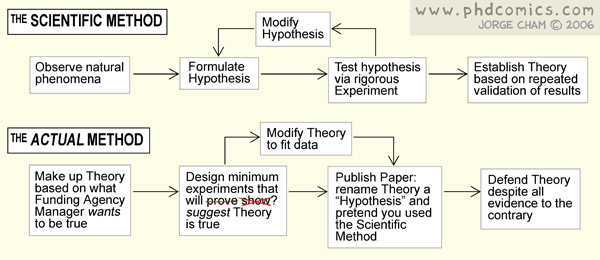I love the world’s evolution with information being available to nearly anyone instantenously. As Peter Diamandis has commented:
…the smartphone you have in your hand or in your pocket gives you access to more information than President Clinton had access to while he was in office.
The access to that information has lead to such world changing events as the ‘Arab Spring’ to something as local as being engaged in your own health as you generate data from fitness monitors, genetic tests, and so on. (On a tangent, personal health is prime example of archaic law standing in the way of personal discovery — for example, in New Jersey an individual is not allowed to order their own blood tests even outside of the insurance system) So, with so much information available what could possibly go wrong?
#1
First, untrusted sources provide bad data. Yes, if you are on Facebook it is probably likely one of your friends posted the ‘latest’ news (that is probably a year old — and no, Mark Zuckerberg still is not going give away shares of Facebook to you for posting something on your timeline) of something strange and unbelievable happening if you do this or go there. Then, looking somewhere down in the comments you see someone calling the ‘news’ out as being a sourceless rumor on the internet (did you check Snopes before posting?) or perhaps more embarrassingly coming from a known fake news site. theONION goes out of its way to help ensure you recognize the satire for what it is, but some other sites are far more devious in trying to look like the real thing. All of this seems pretty harmless. Those friends that propagate the news do provide entertainment at times but what about when odd ‘knowledge’ starts to affect policy. Take for example this story from the Roanoke-Chowan News-Herald about the Woodland Town Council rejecting a proposal to rezone a section of land north of town to M2 (manufacturing) from RA (residential/agricultural), essentially denying approval of a solar farm. To quote the article, residents claimed:
…a retired Northampton science teacher and is concerned that photosynthesis, which depends upon sunlight, would not happen and would keep the vegetation from growing. She said she has observed areas near solar panels where vegetation is brown and dead because it did not receive enough sunlight.
…also questioned the high number of cancer deaths in the area, saying no one could tell her that solar panels didn’t cause cancer.
…the solar farms would suck up all the energy from the sun and businesses would not come to Woodland.
It is true that fears about the solar panels were not the main concerns but it is still troubling, nonetheless, that these fears exist. Of course this is a very simple example and the problem expands when addressing far more complicated issues where some basic background knowledge of physics, genetics, statistics, etc, are required. Are all GMOs equal? Without getting into other risk factors should we at least be grouping GMOs into those incentivized by looking to sell more herbicide or pesticide vs those looking to aid in the battle of changing natural environments or nutritional needs? …but maybe there is a real reason why fake news become so viral — Internet entrepreneurs have realized that not much drives traffic as effectively as stories that vindicate and/or inflame the biases of their readers.

#2
Second, outside of untrusted news sources you have trusted media in the business of making money for the sake of news. Given everything we are exposed to, what do you believe the answer to this question is:
Has the violent crime rate in the United States gone up or down during the past twenty years?
The answer might be surprising if you listen to the mainstream media. The violent crime rate per 100,000 people (includes the offenses of murder, rape [legacy definition], robbery, and aggravated assault) has dropped from 684.5 in 1995 to 365.5 in 2014. Yes, it has dropped by nearly 50% over that time period and, with only 2 or 3 exceptions, it has been dropping steadily over all of those years. Are there still problems? Is something going on with mass shootings? Yes, but the why and what to do about it is not going to be found via ‘trusted’ news sources.
An increasingly connected world tends to have increasingly complex problems with either non-obviously or completely elusive answers. It is my hope to see ‘big data’ and machine learning start to provide us with some insights into things we cannot see without these tools while at the same time making the bogus information and misleading focus of event reporting less of a driver in policy making. In other words my dream is to see Freakonomics, a book about cheating teachers, bizarre baby names, and crack-selling mama’s boys — become more mainstream process than just the child of a few topics chosen by Steven D. Levitt an economist, and Stephen J. Dubner a writer.
(Originally posted on Medium)

